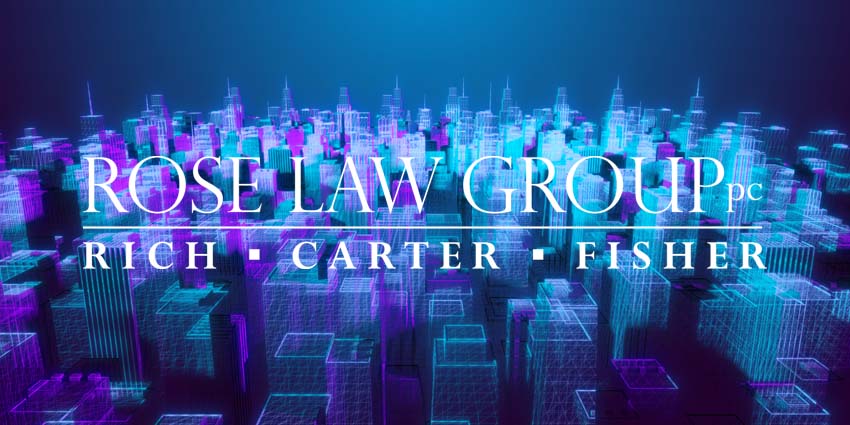Discussions on developing best practices and legal standards for the Metaverse have become crucial over the last few years, leaving many organisations to scramble for legal frameworks dedicated to the rising spatial communications platform.
XR Today spoke to Jordan Rose, Founder and President of The Rose Law Group, a Scottsdale, Arizona-based law firm dedicated to studying Metaverse law and the most recent concerns in the sector.
Rose operates the world’s first female-led law practice and is dedicated to navigating the development of legal matters related to the metaverse, Web3, and intellectual property (IP) rights and patents.
Who Rules on the Metaverse?
XR Today asked how metaverse law would develop over the next few years and where it would grow in different levels of jurisdiction, whether in regional, national, or international law.
Replying, Rose stated that many prominent law firms, including at Harvard and Stanford, may begin exploring the “right course of development” for standardising law across the Metaverse.
Other groups had hinted at the idea of a ‘Constitution of the Metaverse,’ which would explore the definitions of metaverse law.
She cited circumstances around outer space, which had a specific treaty and set of laws. Comparatively, there were no laws dedicated to the Metaverse, she added.
Continuing, she said,
“Certainly, we have all our state and federal laws, but there’s no Metaverse law. You have to fall back to the contract, what state the contract is in, and where the business transaction is happening, and it’s pretty confusing. It’s something that lawyers and judges will look at and probably see differently, compared to where and what law applies in certain instances”
She added many lawsuits would take place on “a case by case basis” depending on the laws and terms of individual contracts.
Jurisdiction would later apply to federal, state, or international courts, but law institutions could later propose standardising Metaverse law, leading to a global legal community similar to the “The Hague of the Metaverse,” she added.
IP in the Metaverse

Jordan Rose, Founder and President of the Rose Law Group
When asked by XR Today about how metaverse lawyers would tackle intellectual property (IP) rights, Rose stated it was “the biggest question we’re asked on a daily basis.”
According to her experiences, creators released content regularly and wanted to protect their IP. Trademarks and copyrights could offer protections in contracts, but patents were more difficult due to “the unique nature” of coding, sparking further developments on IP rights.
Her law firm wanted to “be as cautious as legally possible” to protect client IP, but some rules were obvious and others much less so as the “law is yet underdeveloped [as] people haven’t litigated on the Metaverse on how [cases] would turn out.”
“We’re just trying to create as many layers of protection for clients as possible. It’s stunning to see how much work goes into gamification projects, and that somebody could come and rip you off with no recourse is not acceptable, at least to us”
The interview comes after a speech from Klaris Law’s Alexia Bedat at a recent Immerse Global Summit (IGS) event last year. At the event, she spoke on how the global legal community could determine best practices for ethics, IP, and dispute settlements for the Metaverse.
Organisations such as the Washington, DC-based XR Association, the Virtual and Augmented Reality Association (VRARA), Brussel’s XR4Europe, and the Metaverse Standards Forum, among many others, have also launched significant efforts to build legal and ethical frameworks and for the next iteration of the Internet.
For more information, kindly visit the Rose Law group at their website.
Read More: www.xrtoday.com









 Bitcoin
Bitcoin  Ethereum
Ethereum  Tether
Tether  Solana
Solana  XRP
XRP  Dogecoin
Dogecoin  USDC
USDC  Cardano
Cardano  Lido Staked Ether
Lido Staked Ether  Avalanche
Avalanche  TRON
TRON  Toncoin
Toncoin  Stellar
Stellar  Shiba Inu
Shiba Inu  Wrapped stETH
Wrapped stETH  Wrapped Bitcoin
Wrapped Bitcoin  Polkadot
Polkadot  Chainlink
Chainlink  Bitcoin Cash
Bitcoin Cash  WETH
WETH  Sui
Sui  Pepe
Pepe  NEAR Protocol
NEAR Protocol  LEO Token
LEO Token  Litecoin
Litecoin  Uniswap
Uniswap  Aptos
Aptos  Wrapped eETH
Wrapped eETH  Hedera
Hedera  Internet Computer
Internet Computer  USDS
USDS  Cronos
Cronos  Ethereum Classic
Ethereum Classic  POL (ex-MATIC)
POL (ex-MATIC)  Bittensor
Bittensor  Render
Render  Artificial Superintelligence Alliance
Artificial Superintelligence Alliance  Ethena USDe
Ethena USDe  Algorand
Algorand  Arbitrum
Arbitrum  Filecoin
Filecoin  Bonk
Bonk  Celestia
Celestia  Stacks
Stacks  Dai
Dai  Cosmos Hub
Cosmos Hub  WhiteBIT Coin
WhiteBIT Coin